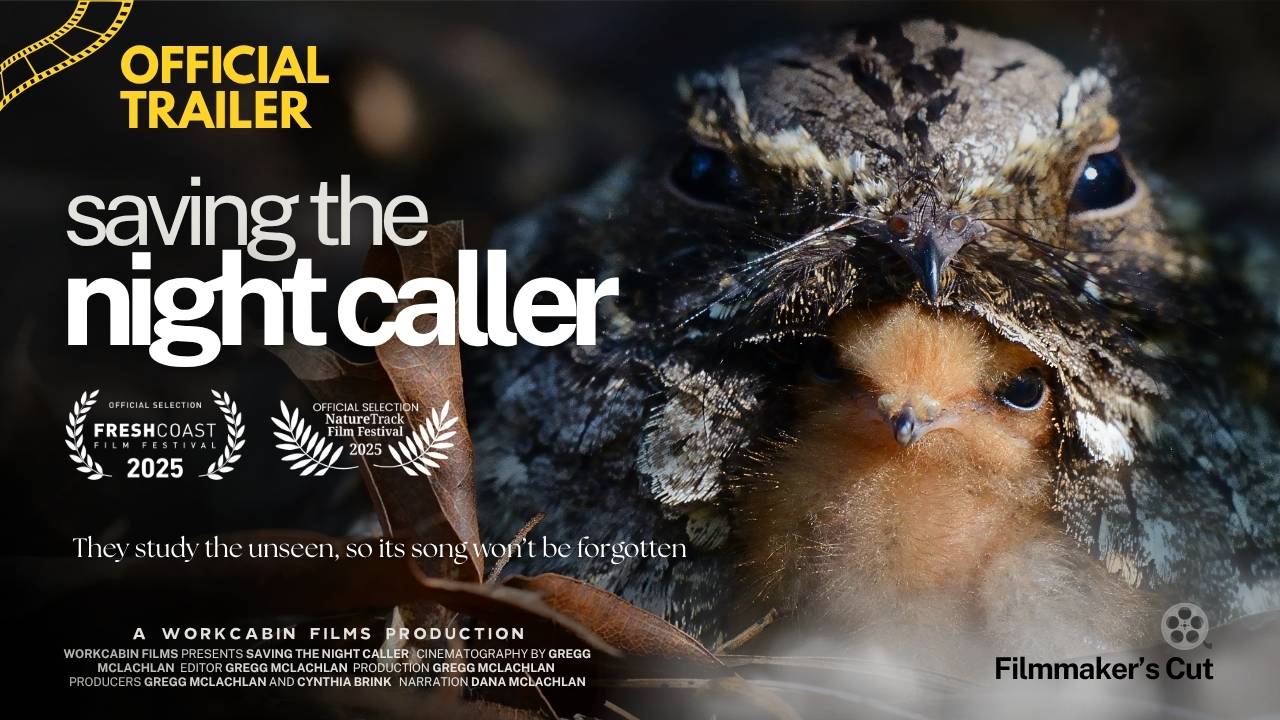

How to Break Into Conservation Filmmaking
I receive dozens of emails every year from aspiring young filmmakers wondering how to break into the field of becoming a conservation filmmaker.
So here goes, my best advice.
It’s not an easy path. There’s no clear ladder to climb or set of steps to follow. If you’re passionate about nature, storytelling, and impact, you can absolutely find your way in. But make no mistake: It will take hard work. And I mean very hard work. Success isn’t won easily.
Here’s how to start.
1. Let Your Love for Nature Lead You
The best conservation filmmakers aren’t in it for fame or followers or Likes. They do it because they feel something when they’re out there. Whether it’s the stillness of a forest, the sound of a loon at dawn, or the sight of a rare bird in flight. That connection is your greatest strength. When you film from a place of curiosity and care, your audience will feel it too.
2. Focus on Stories, Not Just Shots
Beautiful footage is everywhere. What makes a conservation film powerful is the story behind it. Ask questions: What’s happening here? Why does it matter? Who’s affected? How does this connect to the bigger picture? A strong story gives meaning to your visuals and meaning is what moves people to care and take action.
3. Start Small and Start Now
You don’t need a fancy camera or a plane ticket to the Arctic. Your local park, forest, or shoreline is full of stories waiting to be told. Grab a camera (even your phone), head outside, and start filming. Interview a local conservationist. Capture the life of a single tree, pond, or pollinator garden over a season. The key is to start creating. Every short film you make — even the rough ones — will teach you something new.
4. Connect With the People Doing the Work
Conservation filmmaking is all about trust. Reach out to local environmental groups, wildlife rehab centres, or research projects. Volunteer to film an event or create a short awareness video. You’ll learn how to work respectfully in the field and begin building relationships with people who can give you access to unique, real-world stories.
5. Learn the Craft. Bit by Bit
You don’t have to know everything at once. But over time, learn how light shapes a scene, how sound builds emotion, and how editing gives rhythm to your story. Study other conservation films, but also look at narrative and documentary work that inspires you. Take notes on how filmmakers use silence, pacing, or human emotion to create impact.
6. Find Your Style and Your Voice
Your first films might feel uncertain or inconsistent, that’s okay. With each project, you’ll discover what kind of storyteller you are. Maybe you love the poetic side of nature. Maybe you’re drawn to human stories of people protecting wild places. Maybe your strength is quiet observation. The more you film, the more your style will emerge and one day, people will recognize your work instantly because it feels uniquely you.
7. Learn How the Industry Works
Eventually, you’ll need to understand how projects are funded and shared. Many conservation filmmakers apply for grants, pitch stories to festivals, or collaborate with nonprofits that need storytelling help. Don’t be afraid of the business side. It’s how you keep your passion sustainable and make a living while doing good work.
8. Stay Patient and Keep Showing Up
This path takes time. You’ll face rejections, failed shoots, and moments where you wonder if it’s worth it. But every filmmaker — even the ones you admire — started small and kept going. Keep filming. Keep learning. Keep connecting. Every step forward builds your experience and your voice.
Final Thought
Conservation filmmaking isn’t just about making movies. It’s about giving nature a voice and helping others see the wonder, urgency, and beauty of the planet we share.
If that idea excites you, then pick up your camera and start telling the stories that only you can tell.
That’s how you begin.
- A Special Filmmaker’s Cut of Saving The Night Caller - November 16, 2025
- Why Filmmaking Is Leaning Into Nimble Teams - November 11, 2025
- How to Break Into Conservation Filmmaking - October 29, 2025



